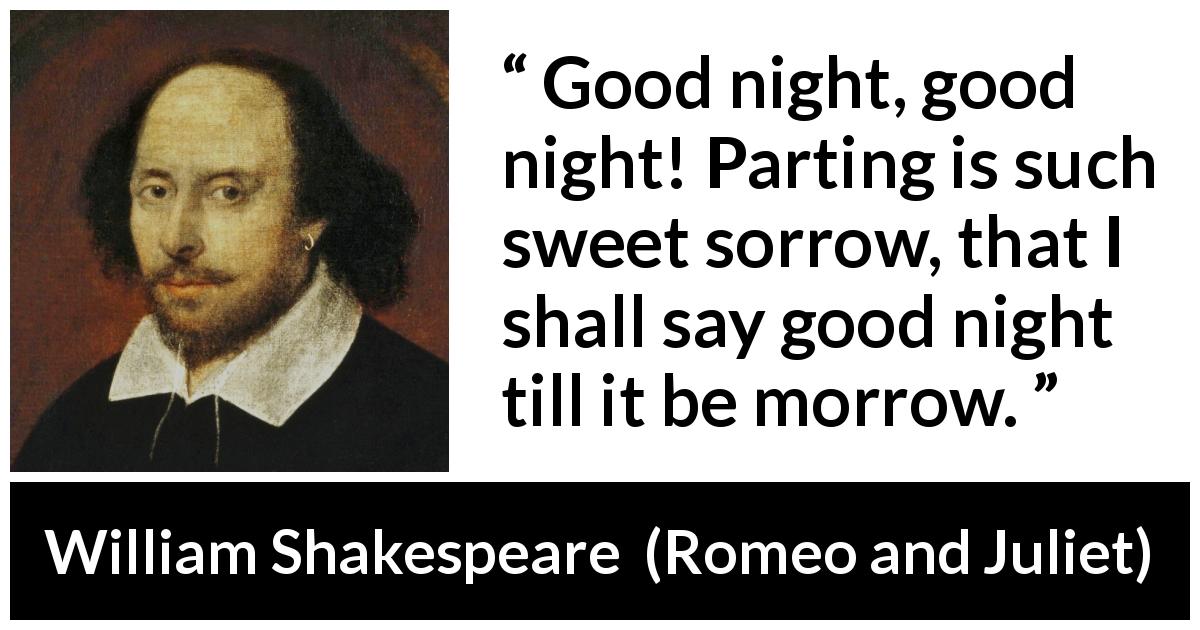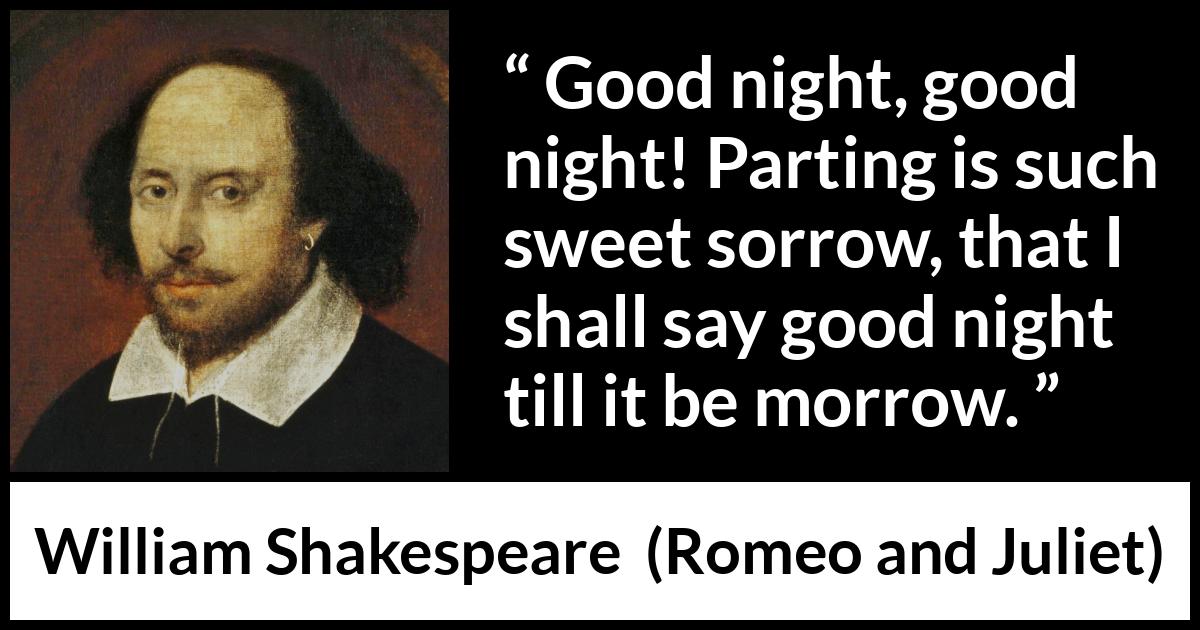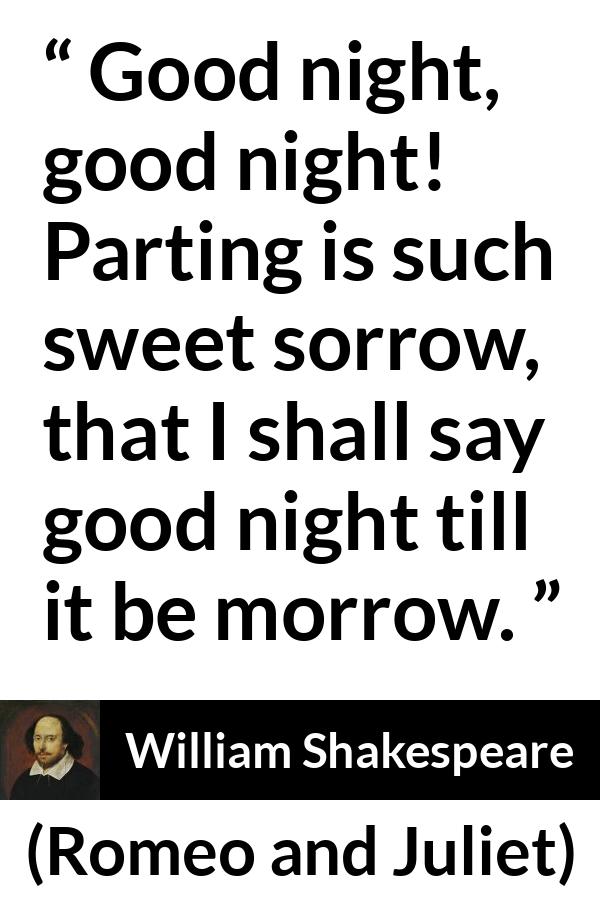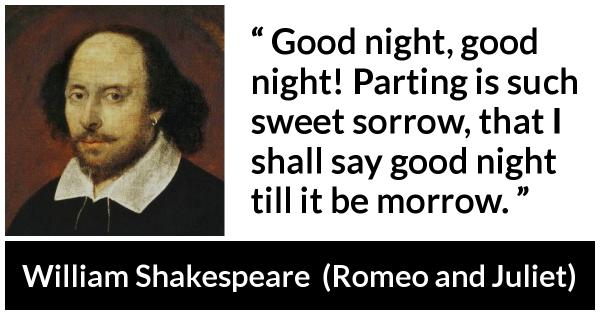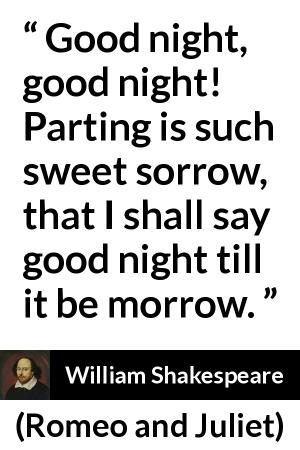“ Good night, good night! Parting is such sweet sorrow, that I shall say good night till it be morrow. ”
William Shakespeare, Romeo and Juliet (1597). copy citation
| Author | William Shakespeare |
|---|---|
| Source | Romeo and Juliet |
| Topic | leaving sadness |
| Date | 1597 |
| Language | English |
| Reference | Romeo and Juliet, Act II, Scene 2 |
| Note | Written between 1591 and 1595 Juliet line |
| Weblink | http://www.gutenberg.org/cache/epub/1112/pg1112.html |
Context
“Like a poor prisoner in his twisted gyves, And with a silk thread plucks it back again, So loving-jealous of his liberty. Rom. I would I were thy bird.
Jul. Sweet, so would I.
Yet I should kill thee with much cherishing. Good night, good night! Parting is such sweet sorrow,
That I shall say good night till it be morrow. [Exit.]
Rom. Sleep dwell upon thine eyes, peace in thy breast!
Would I were sleep and peace, so sweet to rest! Hence will I to my ghostly father's cell,” source
Jul. Sweet, so would I.
Yet I should kill thee with much cherishing. Good night, good night! Parting is such sweet sorrow,
That I shall say good night till it be morrow. [Exit.]
Rom. Sleep dwell upon thine eyes, peace in thy breast!
Would I were sleep and peace, so sweet to rest! Hence will I to my ghostly father's cell,” source
Meaning and analysis
Kwize Master
Juliet speaks this sentence when she leaves Romeo at the end of the famous balcony scene. It is an oxymoron, that is to say this temporary separation is both a suffering and a sweetness, in that she will await their reunion with delight. This paradoxical expression shows that the relationship between Romeo and Juliet is imbued with a certain amount of sadomasochism.
useful
useless
